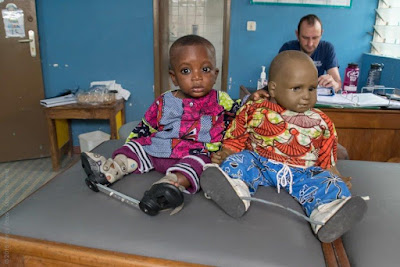 |
The last piece of the gangway going up. |
 |
The tugs pulling us out. |
 |
Pulling out from our berth. |
 |
Deckies working the lines. |
 |
|
Port workers waving us off.
|
 |
Fisherman farewell us. |
 |
Unique dental patients: 6,942. The 4,000th dental patient with Mercy Ships founder, Don Stephens (middle back). |











